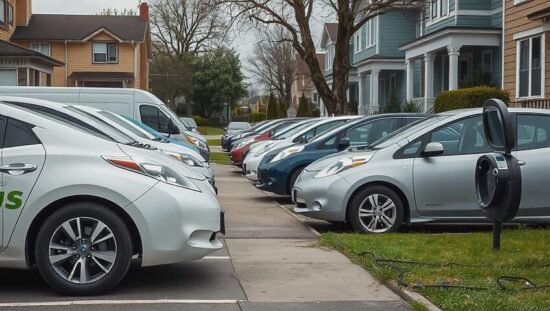A potential paradigm shift in Germany’s energy infrastructure is emerging, according to former Volkswagen CEO Herbert Diess, who hails the burgeoning use of electric vehicle (EV) batteries as grid-scale energy storage as a “breakthrough”. Diess asserts that the current pool of roughly two million EVs on German roads possesses the latent capacity to absorb surplus solar power and release it when demand peaks, potentially alleviating the need for costly network upgrades and delaying or eliminating the construction of new gas-fired power plants.
The feasibility of this ‘vehicle-to-grid’ (V2G) technology is rapidly approaching commercial viability. Diess, citing early successes in France, anticipates that EV owners could reap substantial financial benefits, effectively eliminating their electricity bills for vehicle charging. However, he points to a significant regulatory hurdle currently impeding wider adoption in Germany – a charge levied each time electricity flows in or out of an EV battery. While the Bundestag recently approved a measure to remove this impediment by 2026, Diess argues more fundamental restructuring of the nation’s energy network is required.
His critique is pointed. He contrasts the decentralized and often fragmented nature of Germany’s 866 locally controlled grid operators, which he describes as “grotesque” and “Stone Age” with the streamlined approach of the French centralized model, suggesting the latter possesses twice the efficiency. This criticism touches on a deeper debate regarding the balance between local autonomy and national strategic planning in the energy transition.
Furthermore, Diess dismisses the ongoing German anxieties surrounding the European Union’s planned combustion engine ban as “a very German habit of agonizing” arguing that the race toward electric mobility has already been decisively won. He expresses concern that Germany is disproportionately focused on the anxieties surrounding the transition, while neglecting to adequately support and nurture the companies and innovation driving the electric vehicle sector.
Having championed electrification as CEO of Volkswagen until 2022 and now holding leadership roles within Infineon (a semiconductor manufacturer vital to EV production) and The Mobility House (a company developing V2G technology with Renault and Mercedes-Benz), Diess’s perspective carries significant weight. His assessment highlights the potential for a truly decentralized and dynamic energy system powered by the nation’s existing electric vehicle fleet, but also underscores the need for bolder regulatory reforms and strategic investment to unlock its full potential. The debate extends beyond technological feasibility, implicating fundamental questions about governance, competition and the future structure of Germany’s energy landscape.





